HPU Libraries Resources
Please go to:


LIBRARY LOCATIONS
Two Library Locations:
Library at Waterfront 6 302
Learning Commons at ATM
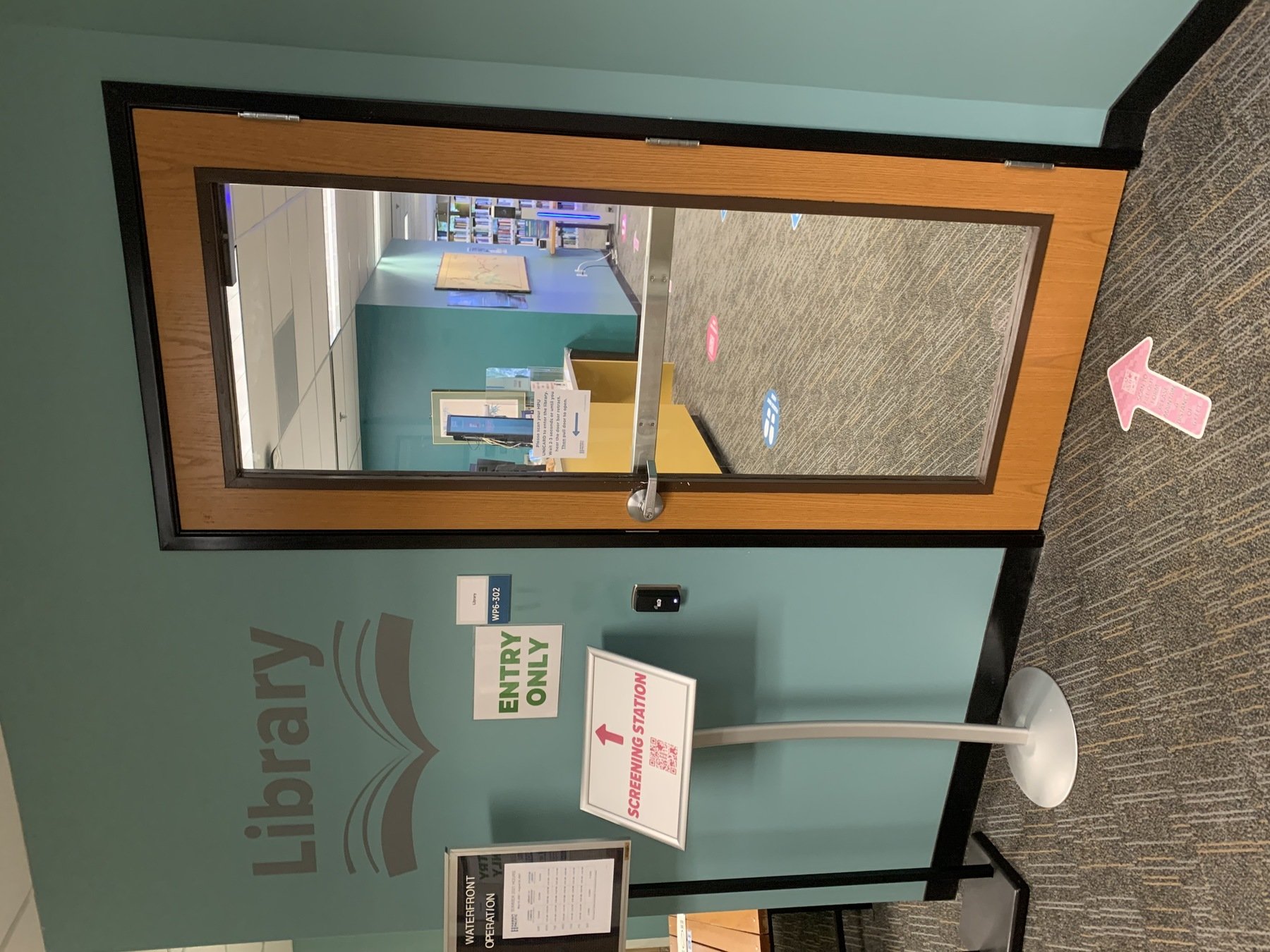

Preliminary Research
- Helps you narrow your topic by finding out how much information is out there and understanding the basics of a topic by obtaining Background Information.
- Encyclopedia Articles
- Books
- CQ Reports or Topic Overviews
2. Helps you get an idea of which specific aspects of your topic you will want to do more detailed research about.
- Keywords and Discipline Terminology

Databases
-
Honolulu Star-Advertiser/ ProQuest
-
Civil Beat/ Website
-
Contemporary Pacific /Project Muse
-
UH Scholar Space
-
HPU Digital
Local
Resources
General
Databases
1) Types of material covered in database
Books? journals? videos? newspaper articles?
conference proceedings? Peer-reviewed journals?
2) Time coverage
What years of publications does the database cover? Some databases only cover from ~1990 to current. Other databases -- such as JSTOR cover articles back to the 1890s!
3) Content access
Was the content found in the database accessible? Is it mainly full text links or do you see Find It links? Does it allow you to search in multiple databases from same company?
4) Navigation within the platform
Is the database easy to use? Does it have regular standard features such as emailing options, citation option, abstracts of content? What type of filters are available?

Evaluating Databases
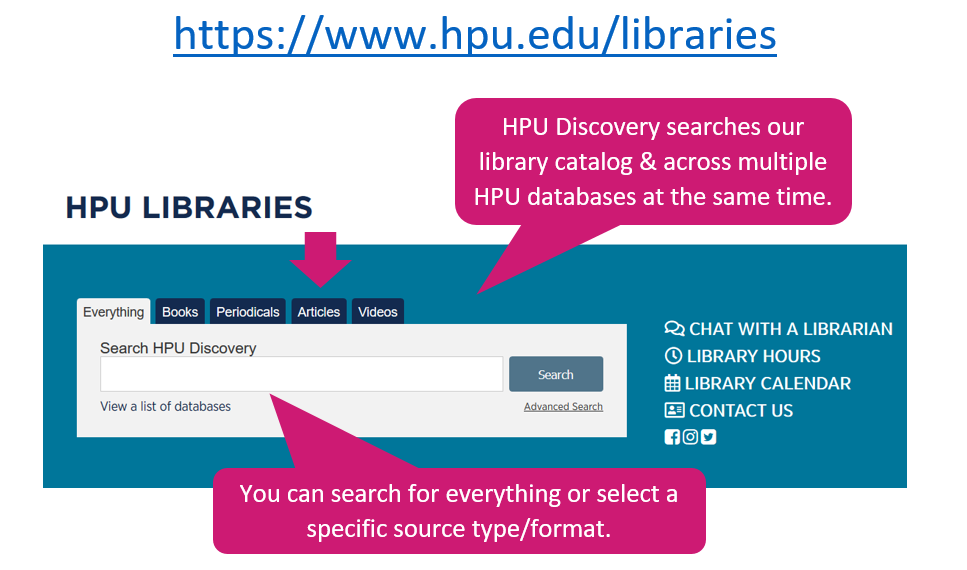
Note: HPU Discovery does not search ALL of our databases.
HPU Discovery
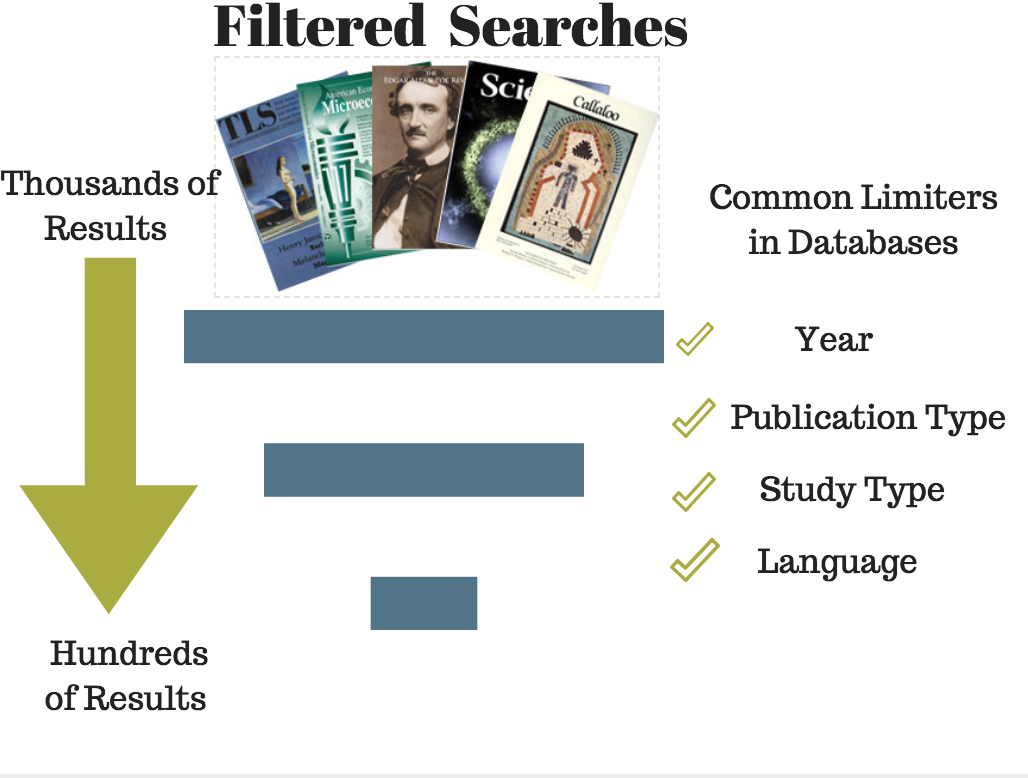
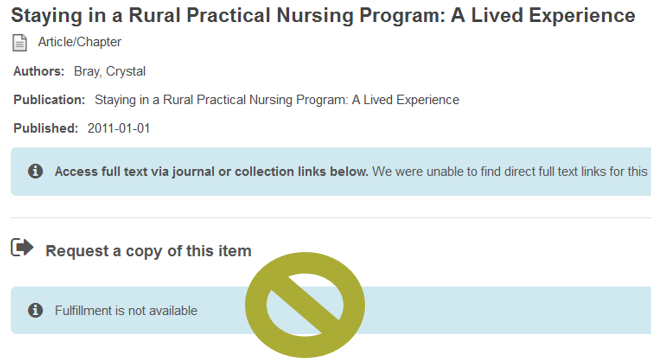
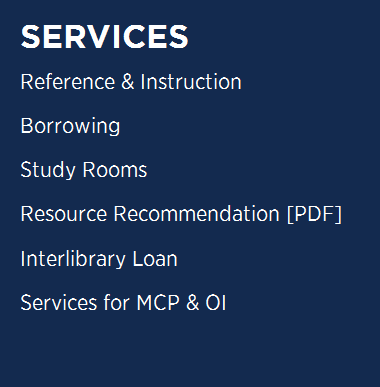
Interlibrary Loan
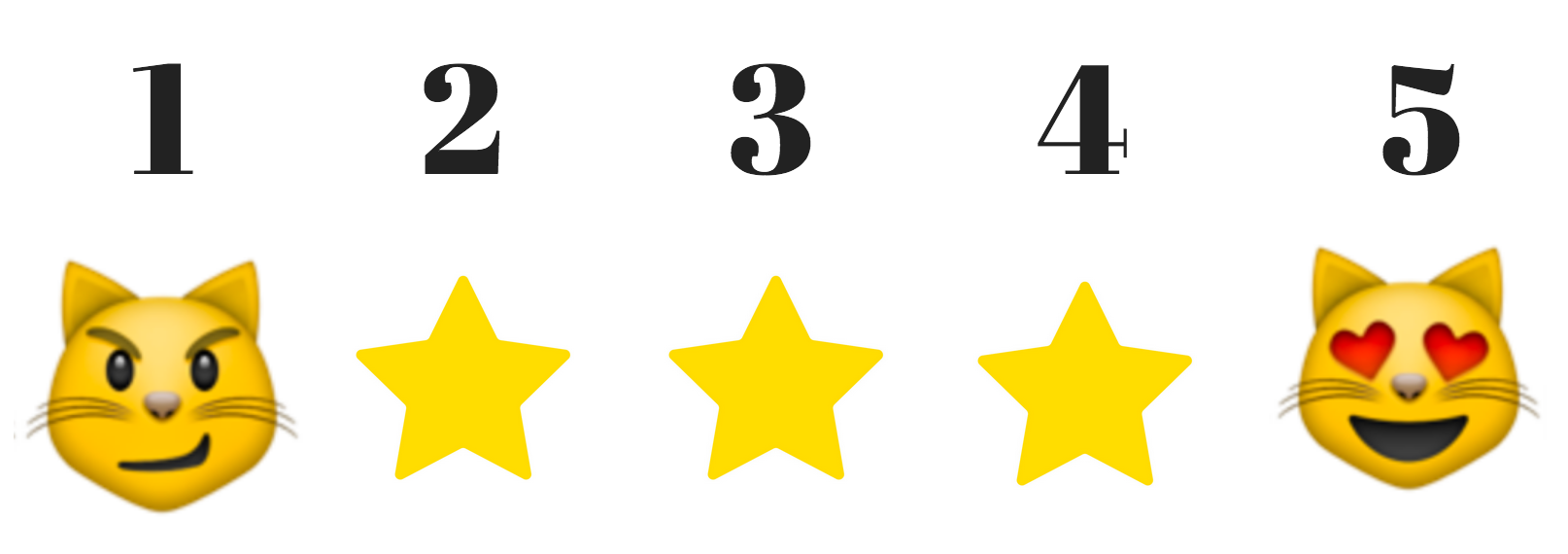
How many stars would you give HPU Discovery??
Information comes in a variety of mediums...

| Popular Magazine | Trade Journal | Scholarly Journal |
|---|---|---|
| Secondary discussion of someone else's research; may include personal narrative or opinion; general information, purpose is to entertain or inform. | Current news, trends and products in a specific industry; practical information for professionals working in the field or industry. |
In-depth, primary account of original findings written by the researcher(s) or reviews of original research; very specific information, with the goal of scholarly communication. |
| Author is frequently a journalist paid to write articles, may or may not have subject expertise. | Author is usually a professional in the field, sometimes a journalist with subject expertise | |
| Professionals in the field; the interested non-specialist. | ||
| Articles are evaluated by editorial staff, not experts in the field; edited for format and style. | Articles are evaluated by editorial staff who may be experts in the field, not peer-reviewed*; edited for format and style | |
| References Rare. Little, if any, information about source materials is given. | Occasional brief bibliographies, but not required. | References are required. Quotes and facts are verifiable. |

Scope
Audience
Author(s)
Reviewed
References
Databases

Databases: List of all subscribed and open-access databases supported by HPU. Look for your discipline or subject area.
Databases
-
Honolulu Star-Advertiser/ ProQuest
-
Civil Beat/ Website
-
Contemporary Pacific /Project Muse
-
UH Scholar Space
Local
Resources
General
Databases


- Search in one of the databases or periodical that we covered today.
- Fill out the prompts
- Find one possible source about your topic from that database and look for citation tool
- Evaluate the database
- Post your findings at
Search Activity
Search Activity

- Search in one of the databases or periodicals that we covered today.
- Explore the database by searching your topic and discuss and observe some advantages and disadvantages of the databases you picked
- Find one possible source about your topic from that database and look for citation tool
- Post your findings at
Search Activity

- Form a team 2 people
- Each team member picks one database we covered to evaluate.
- Explore each database by searching your topic and discuss with your teammate some advantages and disadvantages of the databases you picked
- Post your recommendation at
Searching Activity

- Search for background information in one of the databases we covered today
- Find a potential source and make notes on additional concepts and terms to explore further
- https://b.socrative.com/login/student/
- Enter Login LL5JSFQJ
Search Activity

- Search in HPU Discovery, Academic Search Complete or Opposing Viewpoints.
- Filled out the Google Sheet link is below.
- We will assign numbers.
Think of each information source critically by questioning...
Who is it written by?
Who is the intended audience?
What is the timeliness of the information?
What is the supporting evidence?
Are there any spotted biases or compromised affiliations?
What was the intention of the information being produced?
Where is the information coming from?


Evaluate All Sources
Think Critically Before Sharing

Research: Library@hpu.edu
& Chat whit A Librarian 24/7
Remember there is always HELP available...